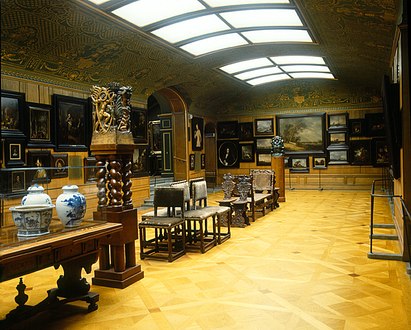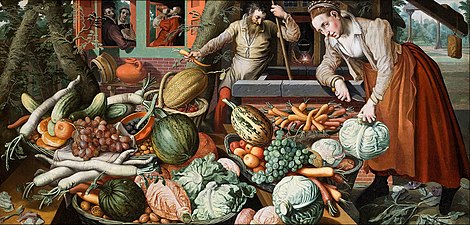
Stockholm Palace, or the Royal Palace, is the official residence and major royal palace of the Swedish monarch. Stockholm Palace is in Stadsholmen, in Gamla stan in the capital, Stockholm. It neighbours the Riksdag building. The offices of the King, the other members of the Swedish royal family, and the Royal Court of Sweden are here. The palace is used for representative purposes by the King whilst performing his duties as the head of state.

The Swedish History Museum is a museum located in Stockholm, Sweden, that covers Swedish archaeology and cultural history from the Mesolithic period to present day. Founded in 1866, it operates as a government agency and is tasked with preserving Swedish historical items as well as making knowledge about history available to the public.

The Nordic Museum is a museum located on Djurgården, an island in central Stockholm, Sweden, dedicated to the cultural history and ethnography of Sweden from the early modern period to the contemporary period. The museum was founded in the late 19th century by Artur Hazelius, who also founded the open-air museum Skansen. It was, for a long time, part of the museum, until the institutions were made independent of each other in 1963.
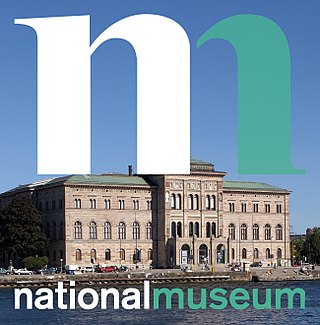
Nationalmuseum is the national gallery of Sweden, located on the peninsula Blasieholmen, in central Stockholm.

Moderna Museet, Stockholm, Sweden, is a state museum for modern and contemporary art located on the island of Skeppsholmen in central Stockholm, opened in 1958. In 2009 the museum opened Moderna Museet Malmö in Malmö.

Skokloster Castle is a Swedish Baroque castle built between 1654 and 1676 by Carl Gustaf Wrangel, located on a peninsula of Lake Mälaren between Stockholm and Uppsala. It became a state museum in the 1970s and displays collections of paintings, furniture, textiles and tableware as well as books and weapons that amount to 20,000 items.
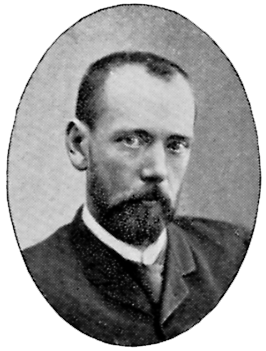
Johan Julius Ferdinand Kronberg was a Swedish artist and decorative painter.

Slottsbacken is a street in Gamla stan, the old town in central Stockholm, Sweden.

The Maritime Museum in Stockholm, Sweden is a museum for naval history, merchant shipping and shipbuilding. Located in the Gärdet section of the inner-city district Östermalm, the museum offers a panoramic view of the bay Djurgårdsbrunnsviken. The building was designed by architect Ragnar Östberg and built in 1933–36.
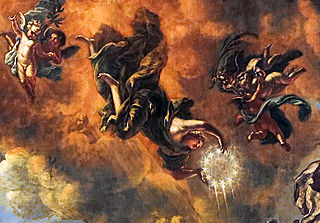
David Klöcker Ehrenstrahl was a Swedish nobleman and portrait painter.
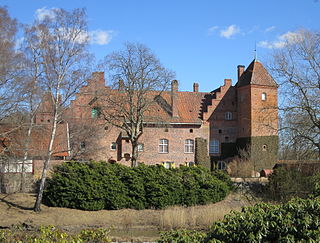
Vegeholm Castle is located in Ängelholm Municipality in Scania, Sweden. The castle is a three-story stone house with a high, split roof that lies around an almost quadratic yard. In two corners there are large, square towers. On both sides of the north facade there are two free laying long buildings.
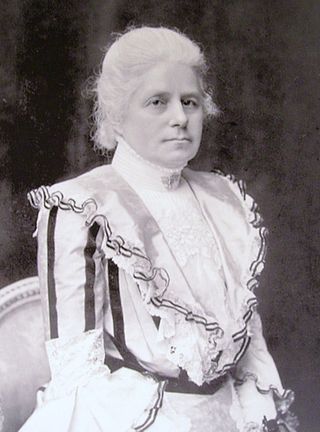
Anna Fridrica Wilhelmina von Hallwyl was a Swedish collector and donor whose accumulation of art and other objects constitute the current Hallwyl Museum in Stockholm.

Lilla Skuggan is an area in Djurgården, Stockholm. On a promontory which was previously known as Roslagsudden, it was developed in the late 18th century by Helena Quiding, who spent summers in the main house, which she called Heleneberg. Quiding was a friend of poet Carl Michael Bellman, and Heleneberg is frequently mentioned in his poems and songs.

The Gotland Museum in Visby, Sweden, is the county museum of Gotland. It was founded by the Friends of Gotland's Antiquity society in 1875, at the initiative of Pehr Arvid Säve. The museum owns a number of houses and farms on Gotland, some of which are used as museums. It also has a publishing house for books on subjects related to the island's heritage.
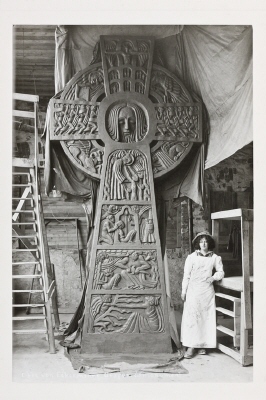
Ellen Roosval von Hallwyl (1867–1952), was a Swedish painter, sculptor and composer.
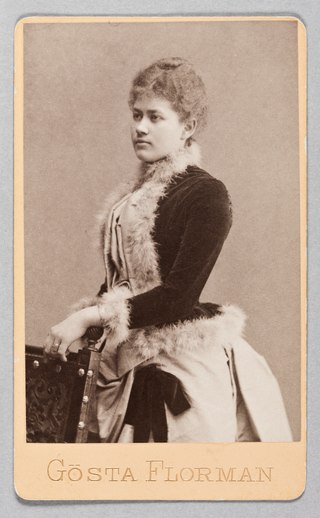
Ebba Johanna Cecilia von Eckermann née von Hallwyl was a Swedish women's rights activist.

The Swedish Centre for Architecture and Design or ArkDes, previously known as the Museum of Architecture (Arkitekturmuseet), is a Swedish national museum dedicated to architecture and design. It is located on the island of Skeppsholmen in Stockholm, Sweden, in the same complex as Moderna Museet. The museum exhibits architecture, urban planning and design under its current acting director Karin Nilsson. It is an administrative authority under the Ministry of Culture.
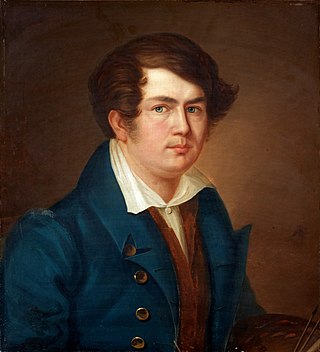
Carl Wilhelm Nordgren was a Swedish portrait painter and professional trumpeter, for the Life Guards of Horse.

Fanny Elisabeth Wilhelmina Hjelm was a Swedish visual artist.




